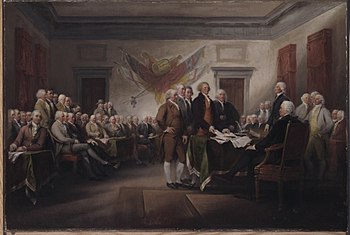In his July 5 press briefing, FBI director James Comey spoke 2,341 words explaining his decision not to recommend criminal charges over Hillary Clinton’s use of a private email server to transmit, receive and store classified information during her tenure as US Secretary of State. He could have named that tune in four words:
“Because she’s Hillary Clinton.”
Comey left no doubt whatsoever that Clinton and her staff broke the law: “[T]here is evidence that they were extremely careless in their handling of very sensitive, highly classified information. For example, seven e-mail chains concern matters that were classified at the Top Secret/Special Access Program level when they were sent and received. … any reasonable person in Secretary Clinton’s position, or in the position of those government employees with whom she was corresponding about these matters, should have known that an unclassified system was no place for that conversation.”
“But that doesn’t matter, because she’s Hillary Clinton.”
18 U.S. Code § 1924 provides for a sentence of up to one year in prison for “Whoever, being an officer … of the United States, and, by virtue of his office, employment, position, or contract, becomes possessed of documents or materials containing classified information of the United States, knowingly removes such documents or materials without authority and with the intent to retain such documents or materials at an unauthorized location …”
“No biggie. After all, she’s Hillary Clinton.”
18 US Code § 793 provides for a sentence of up to ten years in prison for “Whoever, being entrusted with or having lawful possession or control of [classified information] … through gross negligence permits the same to be removed from its proper place of custody or delivered to anyone in violation of his trust …”
“But hey, you know, she’s Hillary Clinton.”
When she became Secretary of State, Clinton signed a Non-Disclosure Agreement laying out the penalties for mishandling classified information. She claims she doesn’t remember signing it.
“Unlike mere mortals, Madame Secretary Clinton mustn’t be held to commitments she doesn’t happen to remember making.”
“Although there is evidence of potential violations of the statutes regarding the handling of classified information,” said Comey, “our judgment is that no reasonable prosecutor would bring such a case.”
“Because she’s Hillary Clinton.”
“To be clear, this is not to suggest that in similar circumstances, a person who engaged in this activity would face no consequences.”
“Unless she happens to be Hillary Clinton.”
“Silly proles … laws are for the little people.”
Thomas L. Knapp (Twitter: @thomaslknapp) is director and senior news analyst at the William Lloyd Garrison Center for Libertarian Advocacy Journalism (thegarrisoncenter.org). He lives and works in north central Florida.
PUBLICATION/CITATION HISTORY
- “Hillary Clinton: More Equal Under the Law than Others,” by Thomas L. Knapp, OpEdNews, 07/07/16
- “Hillary Clinton: More Equal Under the Law Than Others,” by Thomas L. Knapp, Antiwar.com, 07/07/16
- “Hillary Clinton: More Equal Under the Law Than Others,” Ventura County, California Citizens Journal, 07/07/16
- “Hillary Clinton: More Equal Under the Law Than Others,” by Thomas L. Knapp, CounterPunch, 07/08/16
- “Hillary Clinton: More Equal Under the Law Than Others,” by Thomas L. Knapp, Key West: The Newspaper [Florida], 07/08/16
- “Hillary Clinton: More equal under the law than others,” by Thomas L. Knapp, Newberry, South Carolina Observer, 07/08/16
- “Hillary Clinton: More equal under the law than others,” by Thomas L. Knapp, Pahrump Valley, Nevada Times, 07/13/16
- “Hillary Clinton: More equal under the law than others,” Fayette, West Virginia Tribune, 07/21/16


